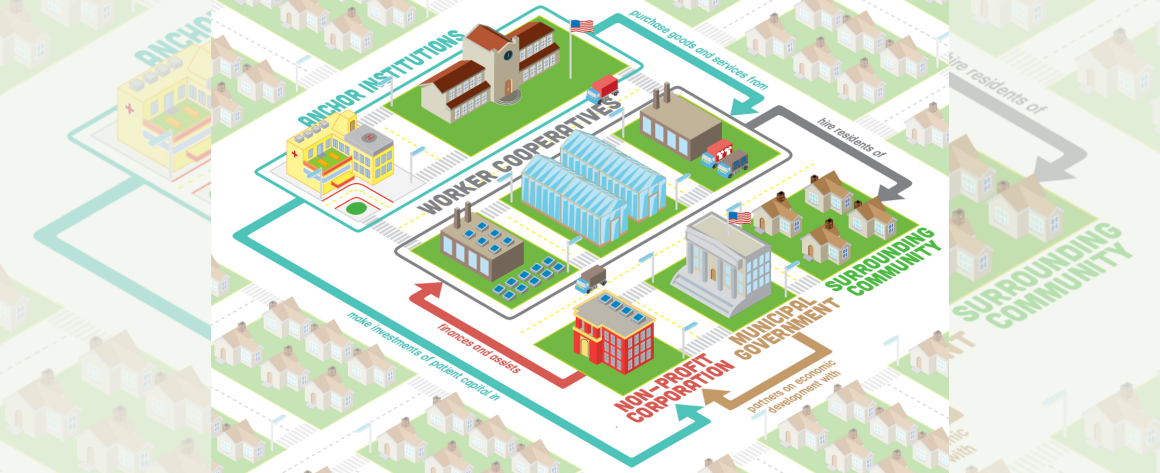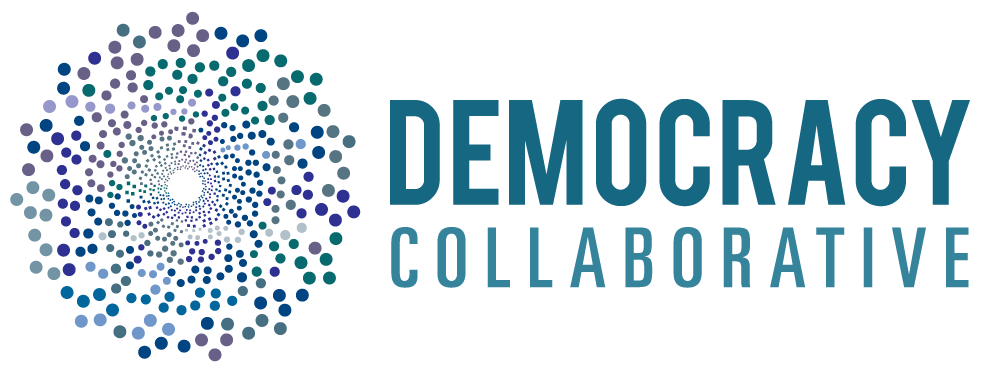Community Wealth Building

What is community wealth building (CWB)?
Community Wealth Building (CWB) is an economic development model that transforms local economies based on communities having direct ownership and control of their assets. It challenges the failing approaches that have been widely accepted in American economic development for too long, and addresses wealth inequality at its core.
Where did it come from?
First articulated by The Democracy Collaborative (TDC) in 2005, CWB takes progressive elements like community land trusts, worker cooperatives, public banking, and more – elements that have previously only existed as one-offs – and supercharges their power, systemically connecting and scaling them to change people’s lives and the economic future of our communities. It does so in coordination with local governments, economic development teams, anchor institutions, and community leaders and organizations: helping them to work in harmony, identify what elements are needed, and see the big picture as they replicate successful new tactics.
The Democracy Collaborative believes that when practiced in a holistic and interconnected way, CWB can democratize our economy from the ground up to build the equitable and sustainable political-economic system we all need.
Who is CWB for?
While its principles can and should be applied at all levels by all actors within a local economy, CWB is especially powerful as the defining framework of a local government. It is made for cities and localities not satisfied with tinkering around the edges, and those who are ready to reset the system entirely – challenging the very ideas that have been widely accepted in American economic development for too long, and addressing wealth inequality at its core.
Creación de Riqueza Comunitaria
Read More:
Action guide for advancing
Community Wealth Building
The Democracy Collaborative has published this practical framework for those pursuing and advancing a Community Wealth Building approach in their locality, including economic development practitioners, community activists and organizations, anchor institutions, local government agencies and leaders
Learn More
The Democracy Collaborative’s Community Wealth Building Technical Assistance Taskforce is a group of individuals and organizations with expertise in specific areas of community wealth building (CWB) and associated sectors.
The Democracy Collaborative’s Community Wealth Building Technical Assistance Taskforce is a group of individuals and organizations with expertise in specific areas of community wealth building (CWB) and associated sectors.



